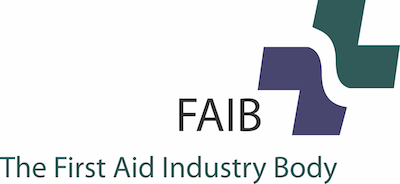The 5th May is International Day of the Midwife, so we've been talking to Dr Sara Wickham - midwife, author and researcher - about everything you need to know about induction of labour. Over to the expert:
These days, around a third of pregnant women in the UK end up having their labour induced. It’s one of the most common interventions in maternity care, and it has significant implications for women, babies and families. It can affect physical and mental health and decisions about future births. So it’s one of those decisions that’s worth considering carefully.
The offer of induction is often welcomed, and for obvious reasons. By the time you get near your due date, you can feel so over being pregnant. Maybe you feel you can’t wait any longer to meet your baby. No wonder so many of us think induction is the answer. Even more so when health providers are telling you that it might have advantages, or be less risky than waiting for labour to start naturally.
But a couple of recent research studies have shown that, while some women are very happy that they had their labour induced, up to a third of women who agree to induction say they were dissatisfied or regret their decision afterwards. Overall, the most common reason for this was that they weren’t given enough information beforehand. And without good information, we can’t make the decision that’s right for our individual circumstances.
Many women say they weren’t told how long an induced labour would take. Some women go into labour really quickly, perhaps because their bodies were already close to going into labour naturally. But for many, it takes two or three days before labour really kicks in. Some didn’t know that their partner wouldn’t be able to stay with them on the antenatal ward while they waited for labour. And others didn’t realise that they would end up having more interventions, examinations, drugs and a higher chance of their baby needing help to be born.
These days, the induction discussion begins early, and a lot of women now find that they are offered a ‘stretch and sweep’ even before they reach their due date. So, with all of this in mind, it’s more important than ever to do some reading and research before you reach the point where you’ll need to make these decisions. Remember that it’s your body, your baby and your decision. Induction of labour will be the right decision for some women, and not the right decision for some women. So what can you do to get yourself informed in good time?
Five tips for getting yourself informed
1. Do your research, from reliable sources. Check out websites and books – though make sure they’re up-to-date (as practice and policy changes often) and from reliable sources. (I’m offering my own website as a starting point below, and it points to lots of other good, reliable sources.)
2. Find out what is offered in your area, for example by asking your midwife. Once you know what you’ll be offered and when, you can consider ahead of time whether you will decide to accept or decline.
3. If you’ve been given a due date that you don’t agree with (for instance where it was changed because of a scan) and you don’t want to be offered induction too soon, start a conversation about this as early as possible. You might feel more tired in late pregnancy, and it’s good to find out where you stand in plenty of time.
4. Talk to those who know what they’re talking about. There are plenty of scary stories out there, especially in the newspapers and online, but you’ll be better served if you find some trusted people who can give you a balanced perspective. And by all means ‘shop around’ to get a range of viewpoints. What’s right for the next family might not be right for you and yours.
5. If you need to, seek support. Find a local birth group, an independent childbirth education class, a doula, or follow people offering good information on Instagram or Facebook.
It’s a good idea to research all birth decisions, but induction is such a common offer these days that it’s especially worth thinking about what you want well before you need to decide.
Dr Sara Wickham is a midwife, author and speaker who offers a range of resources on different aspects of induction of labour if you’d like more information. You can see her induction information web page here. Sara is the author of a range of books written to help women and families make the decisions that are right for them, including Inducing Labour: making informed decisions, and What’s Right For Me? Making decisions in pregnancy and childbirth. She also shares birth information (and pictures of her cat) on Instagram at @drsarawickham







